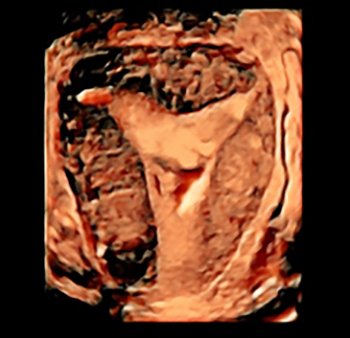
Endometriosis: why does our immune system let it slip through?
Exactly. Why? After reading this article, many people will begin to think differently about endometriosis. Despite it being a chronic illness which affects around 50% of our patients who are being treated for reproduction issues or who turn to us because of pelvic pain, its cause is unknown.
In an attempt to provide an explanation for something which currently does not have one, we turn to the theory of retrograde menstruation, a theory which is becoming less and less credible. That is, part of the menstrual blood each month flows into the interior of the abdomen rather than out of the body. However, this clearly does not explain why there are patients with cases of endometriosis on lungs or on the brain or how it has even been detected in a newborn baby’s umbilical cord.
It is increasingly clear that there may be a link between an immune process and the onset and extent of endometriosis.
It might be explained as a recurrent autoimmune illness. There will be patients who only present ‘one outbreak’ (endometrioma) in their lives and others in whom the disease will always be active. What’s more, it would also appear to have a genetic link, as is the case in autoimmune diseases, and that entire families may be affected.
An immunological basis for endometriosis would explain why the immune system allows such an invasion to take place. When a patient suffers light peritoneal bleeding, our immune system naturally absorbs it or, rather, breaks it down. This does not happen, however, with endometrial tissue.
Why? We know that there is a chronic inflammation process linked to the disease and it has always been believed that this process is a result of endometriosis. But what if it were the cause? It would appear that patients with endometriosis have an immunological alterations in the endometrium which may be the cause of, on the one hand, this chronic inflammatory process in the reproductive system and, on the other, a decrease in endometrial receptivity. These two consequences could be the cause of sterility.
Whilst, for the time being, we have more questions than answers, advances in terms of the disease’s immunity etiopathogenesis could give rise to more efficient treatment.
What we do now right now is that there are certain molecules in the immune system (interleukins) which could help us to carry out an early prognosis with the knock-on effects that this implies.
By spotting them in blood we will be able to know if the patient will suffer from endometriosis or not even when it cannot yet be detected in ultrasound scans. The patient would be informed of the possible reproduction and clinical consequences and steps could be taken to stop the disease from progressing. This also helps us to get an understanding of the patient when we are told about menstrual pain issues even if a gynaecological examination returns normal results.
In short, it would mean more efficient support and treatment.
Instituto Bernabeu Endometriosis Unit offers a comprehensive and personalised care aimed at improving quality of life through pain reduction and prevention of potential complications. Improvement and maintenance of fertility levels.
Dr Belén Moliner, gynecologist at Instituto Bernabeu
